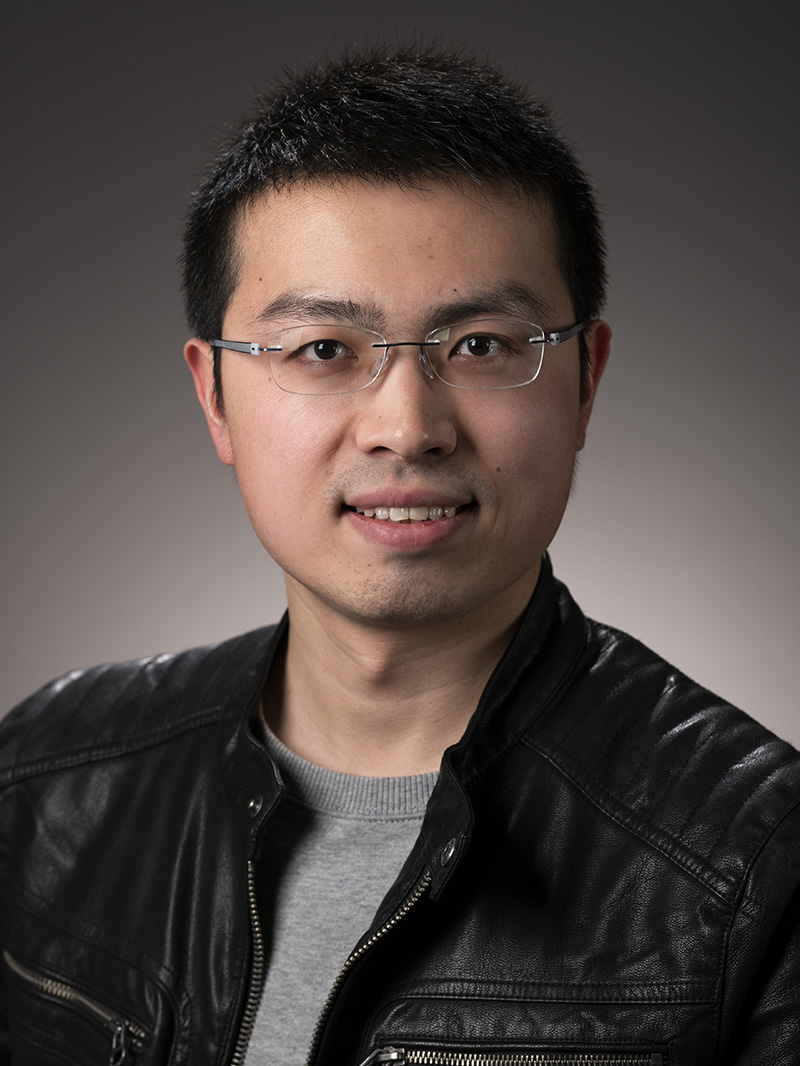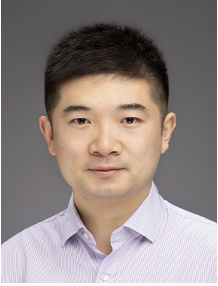Program
CVM 2021 Programme
Download PDF conference programme
| Day One | Wednesday, 21 April 2021 | |
| 09:00 - 09:20 | Opening Session | |
| 09:20 - 10:05 | Keynote 1 | |
| Lingqi Yan (UC Santa Barbara) | ||
| Visual Appearance Synthesis: Challenges and Opportunities | ||
| Industrial Session | ||
| 10:05 - 10:20 | Xi Wang (Booming Technology) | |
| From Game Engine to Matrix Architecture | ||
| 10:20 - 10:35 | Haozhi Huang (XVerse) | |
| Rethinking the Tech Roadmap to a Thriving Metaverse | ||
| 10:35 - 10:50 | Wenqiang Liu (Eazao) | |
| Mass Production for Personalized Ceramics Additive Manufacturing | ||
| 10:50 - 11:05 | Coffee Break | |
| Session 1 | Image Synthesis | |
| 11:05 - 11:25 | Yuan Chang, Congyi Zhang, Yisong Chen, Guoping Wang | |
| Homography Guided Optimization for Motion Assisted Wide-Baseline Image Interpolation | ||
| 11:25- 11:45 | Yu Song, Fan Tang, Weiming Dong, Changsheng Xu | |
| Non-dominated Sorting based Multi-page Photo Collage | ||
| 11:45 - 12:05 | Zuyi Yang, Qinghui Dai, Junsong Zhang | |
| Visual Perception Driven Picture Collage Synthesis | ||
| 12:15 - 13:40 | Lunch | |
| Session 2 | Visual Localization and Navigation | |
| 13:40 - 14:00 | Huixuan Wang, Changhe Tu, Xueying Qin | |
| ReLoc: Indoor visual localization with a hierarchical sitemap and view synthesis | ||
| 14:00 - 14:20 | Xinyu Zheng, Chen Zong, Jingliang Cheng, Shiqing Xin, Shuangmin Chen, Changhe Tu, Wenping Wang | |
| Visually Smooth Multi-UAV Formation Transformation | ||
| 14:20 - 14:40 | Yilin Liu, Di Lin, Ke Xie, Hui Huang | |
| VGF-Net: Visual-Geometric Fusion Learning for Simultaneous Drone Navigation and Height Mapping | ||
| Session 3 | Geometric Algorithm | |
| 14:40 - 15:00 | Qianwei Xia, Juyong Zhang, Zheng Fang, Jin Li, Bailin Deng, Ying He | |
| GeodesicEmbedding (GE): A High-Dimensional Embedding Approach for Fast Geodesic Distance Query | ||
| 15:00 - 15:20 | Bo-Yi Hu, Chunyang Ye, Jian-Ping Su, Ligang Liu | |
| Reference-constrained Geometric Optimization | ||
| 15:20 - 15:40 | Chuanfeng Hu, Hongwei Lin | |
| Heterogeneous Porous Scaffold Generation Using Trivariate B-spline Solids and Triply Periodic Minimal Surfaces | ||
| 15:40 - 15:55 | Coffee Break | |
| Session 4 | Visualization and Simulation | |
| 15:55 - 16:15 | Ji Lan, Zheng Zhou, Jiachen Wang, Hui Zhang, Yingcai Wu | |
| Visual Analytics of Impacts of Behavior Adjustments on Scoring Rates in Table Tennis | ||
| 16:15 - 16:35 | Xiaopeng Sun, Jia Fu, Yu Dong, Teng Chen | |
| Wilting Deformation of Leaves Using Cell Dynamics and Time-Varying External Forces | ||
| 16:35 - 16:55 | Hongyang Zhou, Zhong Ren | |
| Adaptive Geometric Sound Propagation Based on A-weighting Variance Measure | ||
| 16:55 - 17:55 | Poster Session | |
| Zheng-Ning Liu, Yan-Pei Cao, Yu-Tao Yuan, Tai-Jiang Mu, Shi-Min Hu | ||
| Semi-Supervised Learning of Disentangled Representations for Cross-Modal Translation | ||
| Yu He, Guodong Zhao, Songhai Zhang, Shi-Min Hu | ||
| Smoothness Preserving Layout for Dynamic Labels by Hybrid Optimization | ||
| Yanlong Tang, Yun Zhang, Xiaoguang Han, Fang-Lue Zhang, Yu-Kun Lai | ||
| 3D Corrective Nose Reconstruction from a Single Image | ||
| Xiaofeng Zhang, Xin Gao, Yan Zhang, Yujuan Sun, Caiming Zhang | ||
| Improved Fuzzy Clustering Algorithm for Image Segmentation Based on Low-rank Prior | ||
| Haoxuan Song, Jiahui Huang, Yanpei Cao, Shi-Min Hu | ||
| HDR-Net-Fusion: Real-time 3D Dynamic Scene Reconstruction with a Hierarchical Deep Reinforcement Network | ||
| Xiang Ma, Xuemei Li, Jiaye Wang, Yuanfeng Zhou, Caiming Zhang | ||
| Image Smoothing Based on Global Sparsity Decomposition and Variable Parameter | ||
| Dong Chen, Fan Tang, HanXing Yao, WeiMing Dong, Changsheng Xu | ||
| SiamCPN: Visual Tracking with Siamese-based Center Prediction Network | ||
| Renjie Chen, Craig Gotsman | ||
| Efficient Fastest-Path Computations in Road Maps | ||
| Yunai Yi, Diya Sun, Tae-Kyun Kim, Yuru Pei | ||
| Unsupervised Random Forest for Affinity Estimation | ||
| 19:00 - 21:30 | CVM Workshop on Jittor | |
| Day Two | Thursday, 22 April 2021 | |
| Session 5 | Geometry and Texture | |
| 09:00 - 09:20 | Shao-Kui Zhang, Wei-Yu Xie, Song-Hai Zhang | |
| Geometry-Based Layout Generation with Hyper-Relations AMONG Objects | ||
| 09:20 - 09:40 | Hongrui Cai, Yudong Guo, Zhuang Peng, Juyong Zhang | |
| Landmark Detection and 3D Face Reconstruction for Caricature using a Nonlinear Parametric Model | ||
| 09:40 - 10:00 | Sheldon Taylor, Owen Sharpe, Jiju Peethambaran | |
| Prime Gradient Noise | ||
| Session 6 | Multiview Stereo | |
| 10:00 - 10:20 | Qitong Zhang, Shan Luo, Lei Wang, Jieqing Feng | |
| CNLPA-MVS: Coarse-Hypotheses Guided Non-Local PAtchMatch Multi-View Stereo | ||
| 10:20 - 10:40 | Yakun Ju, Yuxin Peng, Muwei Jian, Feng Gao, Junyu Dong | |
| Learning Conditional Photometric Stereo with High-resolution Features | ||
| 10:40 - 10:55 | Coffee Break | |
| Session 7 | Motion Transfer and Prediction | |
| 10:55 - 11:15 | Jinfeng Jiang, Guiqing Li, Shihao Wu, Huiqian Zhang | |
| BPA-GAN: Human Motion Transfer Using Body-Parts-Aware Generative Adversarial Networks | ||
| 11:15 - 11:35 | Qian Zheng, Weikai Wu, Hanting Pan, Niloy Mitra, Daniel Cohen-Or, Hui Huang | |
| Object Properties Inferring from and Transfer for Human Interaction Motions | ||
| 11:35 - 11:55 | Pei Lv, Hui Wei, Yuzhen Zhang, Xiaoheng Jiang, Tianxin Gu, Bing Zhou, Mingliang Xu | |
| Probability Trajectory: One New Movement Description for Trajectory Prediction | ||
| 12:15 - 13:40 | Lunch | |
| Session 8 | Detection and Recognition | |
| 13:40 - 14:00 | Beiji Zou, Wenjun Yang, Kaiwen Li, Shu Liu | |
| A Character Flow Framework for Multi-oriented Scene Text Detection | ||
| 14:00 - 14:20 | Yang Liu, Ruili He, Wei Wang, Shengping Zhang | |
| Is it easy to recognize baby's age and gender? | ||
| 14:20 - 14:40 | Xinyu Li, Guangshun Wei, Jie Wang, Yuanfeng Zhou | |
| Multi-scale Feature Joint Network for Micro-expression Recognition | ||
| 14:40 - 15:00 | Zeyu Shen, Mingyang Zhao, Xiaohong Jia, Dong-Ming Yan | |
| Combining Convex Hull and Directed Graph for Fast and Accurate Ellipse Detection | ||
| Session 9 | Image Understanding | |
| 15:00 - 15:20 | Lixue Gong, Yiqun Zhang, Yunke Zhang, Ying Yang, Weiwei Xu | |
| Erroneous Pixel Prediction for Semantic Image Segmentation | ||
| 15:20 - 15:40 | Jin Zhou, Qing Zhang, Jian-Hao Fan, Wei Sun, Wei-Shi Zheng | |
| Joint Regression and Learning from Pairwise Rankings for Personalized Image Aesthetic Assessment | ||
| 15:40 - 15:55 | Coffee Break | |
| Session 10 | Face Art and Visual Exploration | |
| 15:55 - 16:15 | Chenxu Zhang, Saifeng Ni, Zhipeng Fan, Hongbo Li, Ming Zeng, Madhukar Budagavi, Xiaohu Guo | |
| 3D Talking Face with Personalized Pose Dynamics | ||
| 16:15 - 16:35 | Zhengyu Huang, Yichen Peng, Tomohiro Hibino, Chunqi Zhao, Haoran Xie, Tsukasa Fukusato, Kazunori Miyata | |
| dualFace: Two-Stage Drawing Guidance for Freehand Portrait Sketching | ||
| 16:35 - 16:55 | Ruoqi Sun, Chen Huang, Hengliang Zhu, Lizhuang Ma | |
| Mask-ware Photorealistic Face Attribute Manipulation | ||
| 16:55 - 17:15 | Yifang Wang, Hongye Liang, Xinhuan Shu, Jiachen Wang, Ke Xu, Zikun Deng, Cameron Campbell, Bijia Chen, Yingcai Wu, Huamin Qu | |
| Interactive Visual Exploration of Longitudinal Historical Career Mobility Data | ||
| 17:15 - 18:00 | Keynote 2 | |
| Dani Lischinski (The Hebrew University of Jerusalem) | ||
| Deep Learning for Graphics - A Personal Perspective | ||
| 18:30 - 21:30 | Banquet Dinner | |
| Day Three | Friday, 23 April 2021 | |
| 09:00 - 09:45 | Keynote 3 | |
| Lin Gao (Chinese Academy of Sciences) | ||
| Deep Structural Generative Model for Visual Media Analysis and Synthesis: From Deep Face to Deformable Model | ||
| Session 11 | 3D Feature and Correspondence | |
| 09:45 - 10:05 | Wenkai Han, Hai Wu, Luwen Cheng, Cheng Wang, Xin Li | |
| BLNet: Bidirectional Learning Network for Point Clouds | ||
| 10:05 - 10:25 | Jiachen Li, Fan Zhong, Songhua Xu, Xueying Qin | |
| 3D Object Tracking with Adaptively Weighted Local Bundles | ||
| 10:25 - 10:45 | Xiao-Ming Fu, Jian-Ping Su, Zheng-Yu Zhao, Qing Fang, Chunyang Ye, Ligang Liu | |
| Inversion-free Geometric Mapping Construction: A Survey | ||
| 10:45 - 11:00 | Coffee Break | |
| Session 12 | Styles | |
| 11:00 - 11:20 | Lan Chen, Juntao Ye, Xiaopeng Zhang | |
| Multi-Feature Super-Resolution Network for Cloth Wrinkle Synthesis | ||
| 11:20 - 11:40 | Songhua Xu, Yechuan Tian | |
| A Novel Three-Staged Generative Model for Skeletonizing Chinese Characters in Versatile Styles | ||
| 11:40 - 12:00 | Min Shi, Yukun Wei, Lan Chen, Dengming Zhu, Tianlu Mao, Zhaoqi Wang | |
| Learning a Shared Deformation Space for Efficient Design-Preserving Garment Transfer | ||
| 12:15 - 13:40 | Lunch | |
| Session 13 | Image Processing | |
| 13:40 - 14:00 | Xueting Liu, Wenliang Wu, Chengze Li, Yifan Li, Huisi Wu | |
| Reference-Guided Structure-Aware Deep Sketch Colorization for Cartoons | ||
| 14:00 - 14:20 | Tianlin Zhang, Jinjiang Li, Hui Fan | |
| Progressive edge-sensing dynamic scene deblurring | ||
| 14:20 - 14:40 | Qi Mu, Xinyue Wang, Yanyan Wei, Zhanli Li | |
| Color Image Enhancement Algorithm Based on Weighted Guided Image Filtering Under Low and Non-uniform Illumination | ||
| Session 14 | Video Warping and Interpolation | |
| 14:40 - 15:00 | Jinbo Xing, Wenbo Hu, Yuechen Zhang, Tien-Tsin Wong | |
| Flow-aware Synthesis: A Generic Motion Model for Video Frame Interpolation | ||
| 15:00 - 15:20 | Jinliang Wu, Junjie Shi, Lei Zhang | |
| Rectangling Irregular Videos by Optimizing Spatio-Temporal Warping | ||
| 15:20 - 15:40 | Yudong Guo, Juyong Zhang, Yihua Chen, Hongrui Cai, Zhangjin Huang, Bailin Deng | |
| Real-Time Face View Correction for Front-Facing Cameras | ||
| 15:40 - 15:55 | Coffee Break | |
| 15:55 - 16:55 | Forum: AI Enabled Computational Visual Media | |
| Shi-Min Hu (Tsinghua University), Baoquan Chen (Peking University), Ligang Liu (University of Science and Technology of China), Yebin Liu (Tsinghua University), Zhouhui Lian (Peking University), Yunhai Wang (Shandong University) | ||
| 16:55 - 17:25 | Closing Session | |
Keynote Speakers

Lingqi Yan, University of California, Santa Barbara
Title:
Visual Appearance Synthesis: Challenges and Opportunities
Abstract:
Visual appearance rendering is self-contradictory. Traditional rendering overly simplifies the appearance, leading to loss of details. Complex appearance rendering explicitly models details ranging from micron-level scratches and bumps to real-world-level hair strands and foliage. But they are often too costly to store, and too slow for real-time applications, both due to the huge amount of appearance data needed to be generated, recorded and processed. We want to eliminate this trade-off, generating and rendering visual appearance as accurate as "photorealistic", and fast enough even for real-time applications. To realize this goal, in this talk, I will introduce three key properties to consider: dynamic (on-the-fly synthesis as being queried), scalable (level-of-detail aggregation at zero additional storage cost) and fast (simultaneous syntheses in a massive amount). I will provide a brief view on the synthesis of visual appearance, analyzing its unique challenges and the failure of image synthesis approaches, and providing tentative procedural, example-based solutions, so we can create visual appearance of arbitrary complexity and realism, given just a series of random numbers, a measured block of fabrics, or a strand of hair.
Speaker's Biography:
Lingqi Yan is an Assistant Professor of Computer Science at UC Santa Barbara, co-director of the MIRAGE Lab, and affiliated faculty in the Four Eyes Lab. He received his Ph.D. degree from the Department of Electrical Engineering and Computer Sciences at UC Berkeley in 2018, advised remotely by Prof. Ravi Ramamoorthi at UC San Diego. His research is in Computer Graphics, mainly including appearance modeling, real-time ray tracing, sampling and reconstruction theory, volumetric scattering and light transport algorithms. During his Ph.D. study, he has published a record-breaking number of 7 first authored ACM SIGGRAPH/ACM TOG papers. And he won the SIGGRAPH Outstanding Doctoral Dissertation Award in 2019.

Dani Lischinski, The Hebrew University of Jerusalem
Title:
Deep Learning for Graphics - A Personal Perspective
Abstract:
Starting from the success of AlexNet in 2012, deep neural networks have taken over the field of computer vision by storm. In contrast, the adoption of deep learning machinery by the Computer Graphics community has been much slower. Nevertheless, today deep networks can be found in all the major areas of Computer Graphics, including first and foremost image and video processing, but also animation, rendering, and 3D modeling. In this talk, I will give a brief overview of my personal perspective of this trend, focusing on several exciting advances ranging from texture and image synthesis to motion style transfer for articulated characters. All of these results are enabled by the use of deep networks, demonstrating their potential for graphics, which the community has only begun to explore.
Speaker's Biography:
Dani Lischinski is a Professor at the School of Computer Science and Engineering at the Hebrew University of Jerusalem, Israel. He received his PhD from Cornell University in 1994, and was a post-doctoral research associate at the University of Washington until 1996. In 2002/3, he spent a sabbatical year at Pixar Animation Studios. In 2012 he received the Eurographics Outstanding Technical Contributions Award. In 2017, he served as the Technical Papers Chair for SIGGRAPH Asia 2017. His areas of interest span a wide variety of topics in the fields of computer graphics, image and video processing, and computer vision. Most of his recent work involves deep neural networks and their applications in graphics and vision.

Lin Gao, Chinese Academy of Sciences
Title:
Deep Structural Generative Model for Visual Media Analysis and Synthesis: From Deep Face to Deformable Model
Abstract:
Deep geometry learning has become a hot topic in recent years and is widely used to analyze and generate various kinds of visual media. At present, its main challenge is how to improve the generation quality of visual media and reduce the dependence on 3D annotation data. To deal with these challenges, we utilize the structural information of visual media, design the deep generative model according to the internal structure of visual media, and propose unsupervised 3D model analysis methods. Specifically, for facial image generation, we developed a deep generation network, which encodes facial images using the structure information, and use this network to translate the sketches to high-quality face images. And then we developed an intelligent face drawing system, named DeepFaceDrawing, based on the deep learning framework Jittor. For the CAD model, according to the robust supporting structure of the artificial model, we proposed a new deep generative model named SDM-NET, which is able to encode the supporting structure and rich details of 3D model. Furthermore, we proposed a deep generation network named DSG-NET, which encodes the geometric details and complex structures jointly and hierarchically. In addition, we also study how to use the global symmetry information to analyze symmetry of 3D model in the unsupervised manner.
Speaker's Biography:
Lin Gao is an Associate Professor (PhD supervisor) with Institute of Computing Technology, Chinese Academy of Sciences, also the director of the Intelligent Graphics Laboratory (IGL), IDEI. He received his Ph.D. from Tsinghua University in 2014 advised by Prof. Shi-Min Hu. He was a visiting professor in Prof. Leif Kobbelt group in RWTH Aachen University in 2016. His research primarily centers on algorithmic issues in geometry learning, mesh processing, 3d computer vision. He was selected into Royal Society-Newton Advanced Fellowship, Youth Innovation Promotion Association of Chinese Academy of Sciences, Young Elite Scientists Sponsorship Program of China Association for Science and Technology and so on. He won the Asia Graphics Young Researcher Award in 2020.